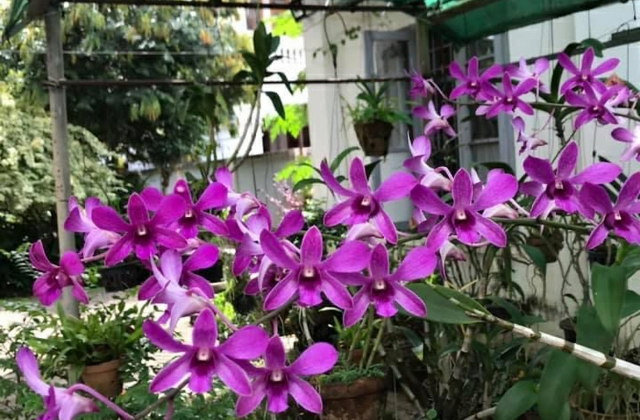How To Make Your Own Orchid Fertilizer

Jack S fertilizer for orchids can provide your orchid plants with all the nutrients they need for successful flowering. In fact, it is one of the most important things you can do to help your orchids thrive. You want to ensure they have a well-balanced nutrient mixture. Too often, orchids are given inappropriate fertilization amounts. This results in poor flower production and eventually, plant failure.
There are many fertilizers on the market that claim to be ideal for orchids. The problem is that not all of these fertilizers are suitable for orchid needs. You should do some research before you purchase one, to make sure that it will provide the nutrients your plant needs. Otherwise, it may result in further harm to your plants.
It has long been established that nitrogen-fixing orchids flourish best with pellet fertilizers. They work well because they provide an even distribution of nutrients throughout the soil. However, pellet-based fertilizers have been found to be more expensive than the nitrate-based types.
As with any type of fertilization, you must read the package directions carefully. Make sure that your orchid plant receives an adequate amount of nutrients. If you are using a powder to apply, stir the powder before applying it to your orchids. Otherwise, the powder may just sit on top of your plants, and the nutrients will not be released.
Organic fertilizers are another option you have when treating your orchids. These fertilizers are much safer for orchid plants, as they tend to not contain dangerous chemicals. Organic fertilizers do not contain ammonia or other nitrates, which are common fertilizers in other types of gardening. Organic fertilizers also help to build the plant’s metabolism, thus helping them to grow rapidly. However, organic fertilizers may not be available in all areas.
In addition to fertilizing your orchids, you should water them often, especially during hot dry days. During winter months and in the periods between rainstorms, it is important to give your orchid plants a full watering. Failing to do so will stunt your plants. You should check the pH level of your orchid’s water every week if you are using tap water and add a bit more water if necessary. Make sure to completely dry out the potting mix after you water your orchid plants.
Growing orchids can be an enjoyable and productive hobby. But in order to get the most out of your orchids, you need to follow some simple steps and maintain your plants regularly. By feeding and watering your orchids on a regular basis, you will be able to improve their appearance, health, and even increase the length of their lifespan. And most importantly, by growing orchids in your own garden, you will be able to save money on the high cost of nursery fees and fertilizer. You may also learn about how to recognize the type of orchid that you have by reading “The Complete Guide to Orchids” by Bill Keene.
If you are growing orchids indoors, you can use a diluted solution of one part water to three parts bleach in the water of your potted plants. The bleach is a natural fertilizer, which will react with the minerals in your orchid pots to give your orchids the nutrients they need. You can also make your own orchid fertilizer, simply by adding equal amounts of manure, blood, lime, or bone meal to a shallow container of water. When the solution starts to turn straw yellow, it is time to dilute it further. You may also add one cup of apple cider vinegar per gallon of water when you are preparing your orchid fertilizer, as this will also enhance the color of the plants.